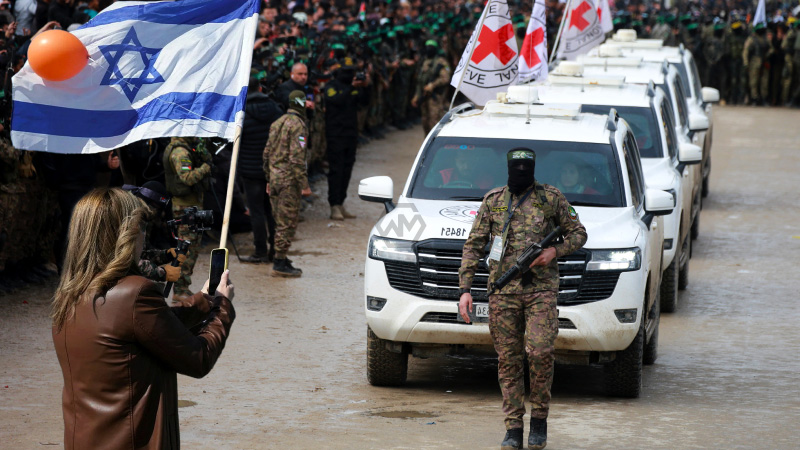- Israel released hundreds of Palestinian prisoners after receiving the bodies of four hostages from Hamas.
- The exchange, delayed by disputes over handover ceremonies, comes amid a fragile ceasefire set to end soon.
- Talks for a second phase of negotiations are expected in Doha or Cairo, with international mediation.
The latest exchange between Israel and Hamas underscores the delicate nature of the ongoing ceasefire, which began on January 19. Israel freed over 600 Palestinian prisoners following the return of four Israeli hostages’ bodies.
Despite the prisoner release, sporadic violence continues, with Israel striking launch sites in Gaza following a projectile fired from the territory.
Ceasefire Uncertainty as Israel and Hamas Navigate Prisoner Exchange
Israel’s release of hundreds of Palestinian prisoners marks a critical moment in the ongoing ceasefire agreement. The move followed Hamas handing over the bodies of four hostages, a process that was initially delayed due to controversy surrounding the ceremonies. Israel had halted the prisoner release earlier, citing Hamas’s elaborate processions as a provocation. The eventual handover was conducted quietly to ensure no further delays.
The ceasefire, in place since January 19, has largely held but remains fragile, with isolated incidents of violence. Israeli airstrikes targeted Gaza launch sites after a projectile fell within Palestinian territory. Meanwhile, the families of hostages continue to demand further action, urging the government to secure the return of all captives. The funerals of those killed in captivity have intensified public grief and political pressure.
International mediators are actively working to sustain the ceasefire and initiate the next phase of talks. US officials confirmed that Israeli representatives are traveling for negotiations, likely in Cairo or Doha, with involvement from Egypt and Qatar. Hamas has insisted that Israel has no choice but to continue the dialogue and move forward with additional exchanges.
As both sides weigh their options, the broader geopolitical impact of the ceasefire remains uncertain. Israel maintains that dismantling Hamas is its key objective, while Palestinian groups emphasize the humanitarian crisis in Gaza. With over 48,000 casualties reported, the situation demands urgent diplomatic intervention to prevent further escalation.
The prisoner exchange highlights the complexities of the Israel-Hamas conflict, balancing humanitarian efforts with political tensions. As negotiations continue, the ceasefire’s longevity depends on both sides’ willingness to engage in further dialogue.
“Peace is not the absence of conflict, but the ability to handle conflict by peaceful means.” — Ronald Reagan



